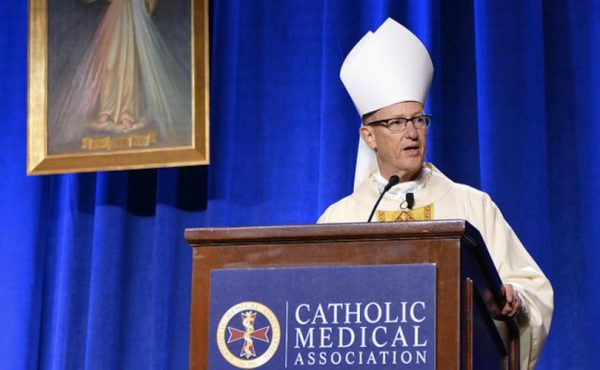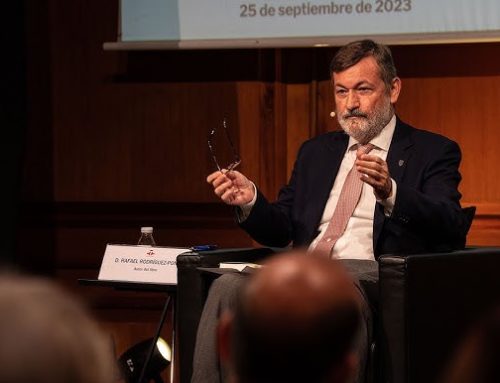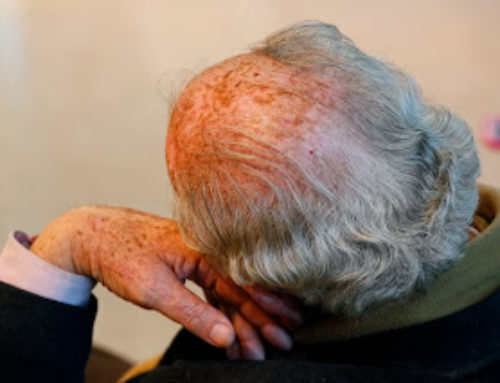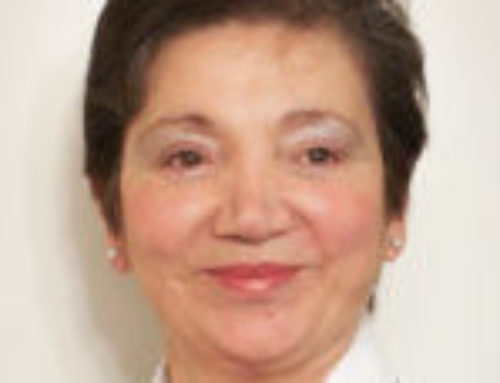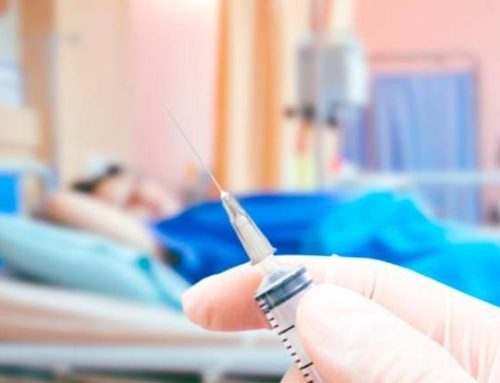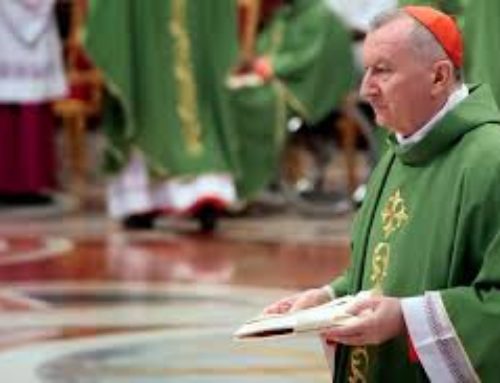By Bishop James Conley
WHAT WE NEED NOWMAY 21, 2024
My Story of Pursuing Mental Health
Since my conversion to the Catholic Church in college, I have always known my total dependence on God, recognizing this as a defining feature of the human condition. I believed Jesus’ words, “Apart from me, you can do nothing” (John 15:5), but this truth became twisted with a lie. I had been raised according to the common American stereotype of the self-made man who solves every problem himself. When things aren’t going well, he doesn’t show weakness, he just works harder. As a Christian, I adapted this to: he prays and works harder. God offers grace but, with that aid, I mistakenly thought I had to do the rest. Such ungodly self-reliance inevitably led to my unraveling.
About seven years after becoming bishop of Lincoln I started buckling under my episcopal duties. The people of this diocese have a beautiful faith, and I wanted to be the strong, invincible leader I thought they deserved. Day in and day out, I tried to fix the problems brought to me instead of surrendering them to the Lord. There was always more work than time, and gradually I slackened in taking care of my own physical and mental well-being. The first thing to go was my sleep because my brain would run nonstop, rehashing the day’s events and wrongly believing everything depended on me. Although the wear and tear of this lifestyle was taking its toll, I kept trying to muscle through. As my body began to break down from lack of sleep and stress, I ate irregularly or not at all. My physical deterioration led to emotional and psychological decline and, before I knew it, I was barely holding onto the last thread of my spiritual health.Subscribe
In retrospect I can see that shame undermined the Holy Spirit’s impulses to tend to my physical and mental health. I had no family history of mental health disorders, had been raised by loving parents, and was blessed with close friends and meaningful work—surely, I couldn’t be suffering from mental health issues! After eventually being medically diagnosed with PTSD, major depression, anxiety, and tinnitus, I was forced to confront my denial. But even then, I didn’t think a bishop could take time off to deal with personal issues. Even though I was barely functioning and at the end of my rope, I still minimized my problems.
Thankfully, my sister, friends, and medical professionals helped me recognize that it wasn’t selfish to take care of myself. When Jesus commands, “You shall love your neighbor as yourself” (Matthew 22:39, emphasis added), most of us hear a call to love others well. This is certainly true, but it is also a command to rightly ordered self-love.1 St. Thomas Aquinas explains that we must love ourselves—and we are free to choose whether to do it well or poorly.2 I had drifted away from the Church’s teaching that since we are body and soul, taking care of our physical and mental health is part of God’s plan for our lives. And this lack of self-love was now hindering my ability to love and serve well.
In December of 2019, I was granted permission by the Holy Father to take a leave of absence to attend to my mental health. It was extremely hard to step away from my duties as bishop, especially without a set timetable for my return. It was humbling to admit that I didn’t know how long my healing would take—or if I would even return—but I wanted to combat the cultural stigma around mental health issues and my shame by sharing my suffering openly. The outpouring of support and prayer I received from the good people of the Diocese of Lincoln was beyond what I could’ve imagined. I would need all that grace since the hardest part of my journey was still ahead.
In Recovery
Covid-19 exploded across the world a few months after I moved into a diocesan retreat facility in Phoenix at Bishop Thomas Olmsted’s generous invitation. The added isolation of the pandemic, the challenging work of mental and physical healing, and a spiritual dryness combined to create one of the darkest periods of my life. Looking back on those months, perhaps the worst part of that time in my life was the loss of joy. Anyone who knew me, knew that I was always a positive, upbeat kind of person. That disappeared as my joy evaporated.
Feeling like I had lost nearly everything, I clung to my three anchors: Holy Mass, the Rosary, and the Liturgy of the Hours (the official prayers of the Church that priests and religious promise to recite daily). These three anchors gave structure to my day but offered little solace. Still, I knew that to let go them would unmoor me. During this time my Breviary occasionally consoled me because the heart cries of the psalms resonated. Strange as it may seem, one verse from Friday Night Prayer, “My one companion is darkness” (Psalm 88:18), became a comforting reminder that others had experienced darkness for a season and found their way back into the light. But that solace always faded, and I couldn’t help wondering: Where was God?
As I grappled with this question amid the darkness and loss of joy, the moon in the desert sky became a powerful symbol to me. Because the moon waxes and wanes, there are a few days in the lunar cycle when it disappears from view. It is still there, of course, but the naked eye can’t see it. It is the same with God. Even when I can’t see, hear, or feel Him, He is still there.
It was during this period of darkness that Jesus’ words, “Apart from me, you can do nothing,” began to take on deeper meaning. I started to experience the freedom of surrender as I gradually allowed Jesus to shoulder burdens I had been carrying on my own. Understanding my role as a collaboration with Jesus in His work became liberating and a turning point for my unhealthy self-reliance. As my therapist would often remind me, all you have to do is “show up,” and the Lord will do the rest.
This also helped me open to more support from friends. There were several young families living in Phoenix who opened their homes to me. It was therapeutic to spend time with their children and to grill and chat outside in their backyard. I played golf with other friends in Phoenix, and over the course of those months my sister, some close lay friends, and a handful of my brother bishops even flew to Phoenix to spend a few days with me. All this love and support helped get me out of my own head, out of the house, and out of isolation.
The last gift of this difficult healing season was my dog, Stella. My good friend Bishop James Wall of Gallup was in the process of getting a puppy and he convinced me to do likewise. Looking back it’s funny to think that a ten pound puppy was crucial in beginning to bring joy back into my life. Stella goes nearly everywhere with me now and is loved by all. Since I live alone, she provides needed companionship and ensures I get outside every day for walks.
After shadowing Archbishop Paul Coakley of Oklahoma City, my closest friend of over 50 years, and Archbishop Joseph Naumann of Kansas City, I was ready to resume my episcopal duties in November 2020. Since most things had been put on hold because of Covid, I returned to many of the same issues that were pending when I left. These challenges were heightened by my mom’s passing on December 19, which was particularly hard because we were so close. Although my return to “normal” life was bumpy, I was intentional about prioritizing physical, emotional, and spiritual well-being. For instance, in 2021 I was blessed to join three other bishops for a Healing the Whole Person retreat sponsored by the John Paul II Healing Center. Led by an incredible team, it was a time of intense healing and camaraderie, and we still do a monthly check-in.
My journey toward greater wholeness and holiness will continue, but I am immensely grateful for the additional freedom and peace I have now. I am also no longer on any medication, which at one time seemed an impossibility. I share my own story in the hopes that it will hasten the demise of the mental health stigma in our culture. I also pray it will inspire others to embrace Jesus as the Divine Physician and experience more fully “the freedom of the glory of the children of God” (Romans 8:21).
Seeking Wholeness and Holiness
I am obviously not a mental health professional. I offer these pastoral reflections based on my knowledge of Church teaching and experiences of healing, so we might all move closer to wholeness and holiness.
Seek healing from Jesus directly. The Gospels emphasize Jesus’ healing ministry, and His healing work continues! We should always go first to the Lord to ask for physical, emotional, or spiritual healing. While there are some who receive instantaneous and miraculous healings (and it’s good to ask for this), the Lord may choose to heal us gradually or even to permit the suffering to continue. No matter what, we can be at peace trusting that He gives us what we need and is working everything for good.
In addition to regular prayer, the sacraments are a crucial part of every Catholic’s healing journey because through them we directly receive a share in divine life. In the sacrament of the Eucharist, the God who healed lepers, the blind, the sick, and the lame literally unites Himself with us! We should approach this union with expectant faith, as the very words of the Mass encourage us: “Lord, I am not worthy that You should enter under my roof, but only say the word andmy soul shall be healed.” Whatever kind of healing we desire, we can bring it to Jesus in the Eucharist and trust that He is at work.3
The other sacrament we should regularly receive on our journey is the sacrament of Penance. Even if our personal sin is unconnected to our ailment, confession strengthens us on our earthly pilgrimage and can impart many consolations, including peace and a sense of God’s love. In instances where our sin is a driving factor in our distress, we can turn to the sacrament of Penance for freedom from the weight of our sin. The sacrament also aids our quest for mental health by showering us with particular graces to combat the sins we confess. This is an irreplaceable gift in our journey toward virtue and wholeness.
When we have sought holiness for any length of time, we inevitably seem to experience a lack of progress with particular sins, despite considerable effort. Instead of allowing the cycle of repeated sin and confession to sap our mental health, we can follow St. Thomas Aquinas in recognizing that sin as “an occasion for humility and greater caution.”4 To avoid becoming discouraged, we can thank God for another reminder of our total dependence on Him, lean into the opportunity for humility, and begin again.Subscribe
Seek healing from Jesus indirectly. The Church offers other opportunities for healing beyond the sacraments, such as healing services and prayer teams. I am familiar with some miraculous healings that have happened through similar avenues and encourage priests and lay people alike to offer them in their local communities. Additionally, the Church urges us to seek the intercession of the saints who, now in Heaven, are our most powerful intercessors.
I am especially close to St. Joseph because I was born on his feast day (March 19). At the retreat center in Phoenix there was a marble statue of a middle-aged St. Joseph embracing a young Jesus. Each morning the first thing I saw outside the window was this patron of the Universal Church, appearing so strong and steady. The statue served as a daily reminder that St. Joseph was a good foster father, encouraging me to take my recovery one day at a time—or, when that felt too overwhelming, just one step at a time. Feeling my acute need for his help in this difficult season, I consecrated myself to St. Joseph using Fr. Donald Calloway’s excellent book, Consecration to St. Joseph. This great saint’s assistance was so palpable that in 2021 I consecrated the entire Diocese of Lincoln to him. I can’t encourage you enough to personally consecrate yourself to St. Joseph and experience firsthand the benefits of his powerful intercession.
During my leave of absence, I also met regularly with a psychologist, medical doctor, and spiritual director, as well as a trusted psychiatrist. These people were not only experts in their fields, but were true disciples of Jesus. They all played crucial, though different, roles in my healing. While recognizing that your access to such support may be limited, I encourage you to seek help via whatever means are available to you. Additionally, there is something immensely healing about a loving community. We are communal creatures and, since many wounds are relational, much healing can be found through safe and loving relationships. Trust and let the people who love you help. If you don’t have this kind of support, pray for these relationships. It is a deep sorrow to be without them, but the Lord always provides on His own timetable and in His own creative ways.
Seek healing through balance. Mental health issues can be created or exacerbated (as they were for me) if we don’t care for all the dimensions of our life—body, mind, and soul. Making time for sleep, healthy eating, exercise, and recreation is important not just for mood stabilization but for fostering an overall sense of well-being and joy. These are foundational building blocks we can put in place or improve upon.
You Are Not Alone
What we can be always sure of—no matter what is happening in our lives—is that we are not alone. You are not alone! God knows your suffering intimately and wants to walk with you through it. In this moment, as in every moment, He is whispering to you, “I know the plans I have for you…plans for your welfare and not for harm, to give you a future with hope” (Jeremiah 29:11).
The hope God gives us and the joy that accompanies this hope, is a precious treasure we must protect. When hope wanes, let us remember the countless ways God has blessed us, the particular instances in our lives where He has “come through,” and the dark times when He felt absent but, in hindsight, we could discern His presence. Reading the lives of the saints is also a powerful way to remember that God is active in every life at all times in history. How comforting to know many saints struggled like us—St. Ignatius of Loyola contemplated suicide,5 St. Jane Frances de Chantal suffered from depression for over forty years,6 St. John of God had a mental breakdown that resulted in hospitalization,7 and St. Elizabeth Ann Seton struggled with anxiety and depression.8 They all grew closer to God through their struggles and so can we.
The Most Reverend James D. Conley, D.D., S.T.L. is bishop of Lincoln. His episcopal motto is the same as John Henry Cardinal Newman’s, “cor ad cor loquitur,” which means “heart speaks to heart.” This essay is an abridgement of Bishop Conley’s full pastoral letter, A Future with Hope.1
St. Thomas Aquinas distinguishes between a rightly ordered love of self, which is good and healthy, and an inordinate love of self, which leads to sin. In his words, “Well ordered self-love, whereby man desires a fitting good for himself, is right and natural; but it is inordinate self-love, leading to contempt of God, that Augustine reckons to be the cause of sin” (Summa Theologiae II-I, Q. 77, A. 4, ad 1).2
“Love of self is common to all” (Summa Theologiae II-II, Q. 25, A. 7, co).3
See John 5:17: “But Jesus answered them, ‘My Father is still working, and I also am working.’”4
St. Thomas Aquinas, Quaestiones Disputatae de Malo, q. 3, a. 13, reply to objections.5
Zubair Simonson, “Do You Suffer From Depression? St. Ignatius of Loyola Has Been There Too,” National Catholic Register, July 31, 2021.6
Kevin J. Banet, “Depression and St. Jane de Chantal’s ‘Anguish of Spirit,’” Catholic 365, August 25, 2023.7
Mike Eisenbath, “Here’s why I think St. John of God should be a new patron for the mentally ill,” Aleteia, May 10, 2017.8
Kate Quiñones, “‘Christ wants to be with us’: how Catholic ministries are responding to the mental health crisis,” Catholic News Agency, April 13, 2024.

